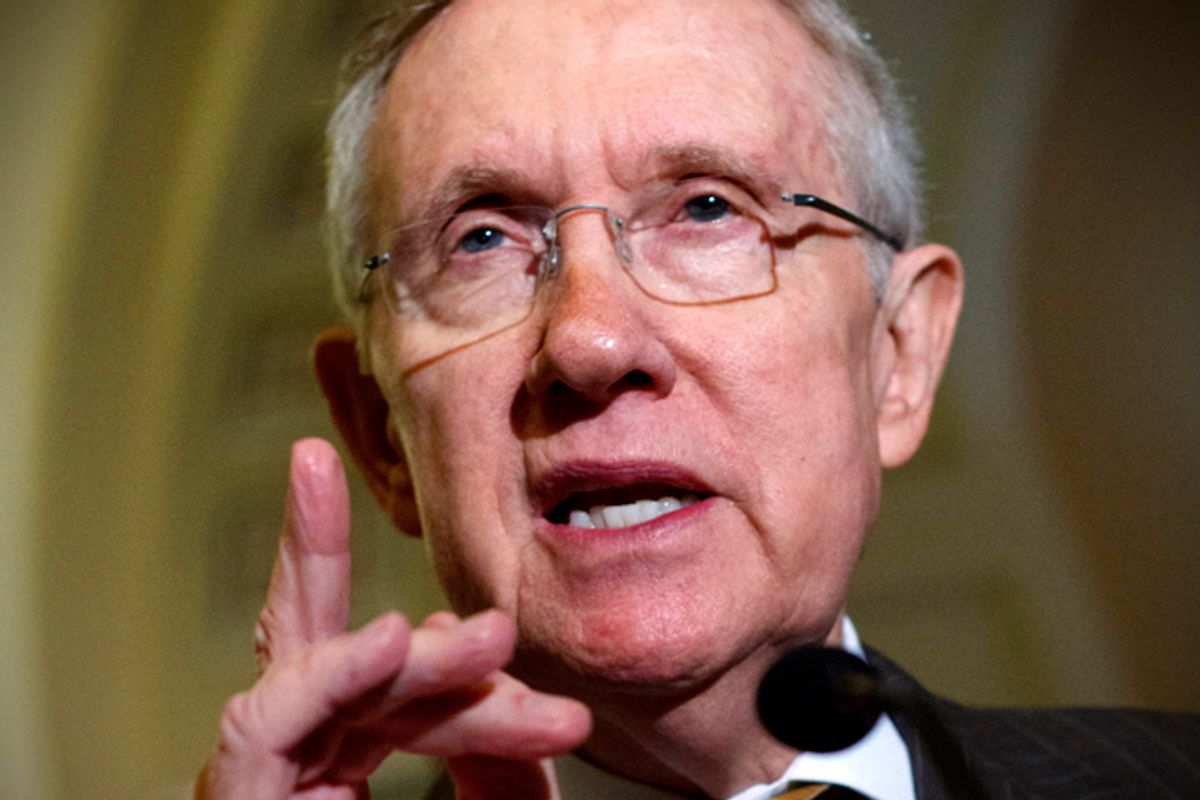After repeatedly insisting that he would seek a sixth Senate term in 2016, Democratic leader Harry Reid of Nevada announced on Friday that he will not be a candidate for re-election next year, saying he wants to "go out at the top of my game."
Mr. Reid, 75, who suffered serious eye and facial injuries in a Jan. 1 exercise accident at his Las Vegas home, said he had been contemplating retiring from the Senate for months. He said his decision was not attributable either to the accident or to his demotion to minority leader after Democrats lost the majority in November’s midterm elections.
“I understand this place,” Mr. Reid said. “I have quite a bit of power as minority leader.”
He has already confounded the new Republican majority this year by holding Democrats united against a proposal to gut the Obama administration’s immigration policies as well as a human-trafficking measure Democrats objected to over an anti-abortion provision.
“I want to be able to go out at the top of my game,” said Mr. Reid, who used a sports metaphor about athletes who try to hang on too long. “I don’t want to be a 42-year-old trying to become a designated hitter.”
First elected to office in 1968 as a member of the Nevada Assembly, Reid served as lieutenant governor of Nevada from 1971 to 1974 and later led the Nevada Gaming Commission before winning a Las Vegas-based U.S. House seat in 1982. After two terms in the chamber, Reid was elected to the Senate, where he became minority leader in 2005, following the re-election defeat of former Democratic leader Tom Daschle of South Dakota. The Democrats' recapture of the Senate in 2006 propelled Reid to the majority leader's office, which he held until the Republicans retook control of the body last year.
Reid would have faced a potentially difficult re-election battle had he fought to remain in the Senate. He dispatched Tea Party challenge Sharron Angle by five points after a hard-fought 2010 race, and has long been a top Republican target, only winning one Senate election with more than 53 percent of the vote.
With Reid's retirement announcement, speculation is already turning to the question of who will succeed him -- both in Nevada and at the helm of the Senate Democratic caucus. More from the Times:
Senator Charles E. Schumer of New York, who helped Democrats capture the Senate in 2006 and has led their political messaging operation, is considered the favorite to succeed Mr. Reid as party leader. Senator Richard J. Durbin of Illinois, the Senate’s No. 2 Democrat, could also be a contender for the job, but it is unclear how strongly he would pursue it.
In Nevada, Catherine Cortez Masto, the state’s former attorney general, is considered a strong Democratic candidate with Mr. Reid out; the Republican field will be fluid and is likely to include Michael Roberson, a State Senate leader.



Shares